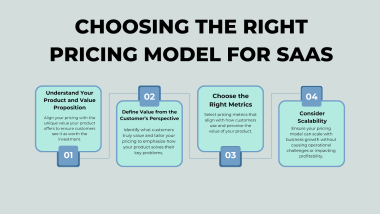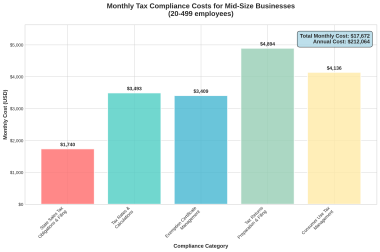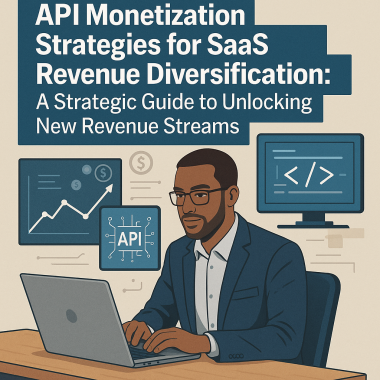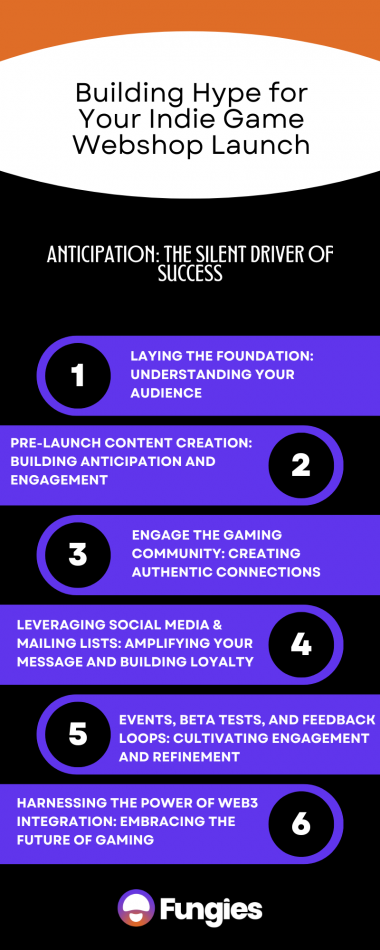Ever wonder how you can play the latest games on your phone or computer without spending a dime? It might seem like magic, but there’s a clever business plan behind those free-to-play (F2P) games that are quite famous these days.
In fact, a whopping 80% of all mobile games downloaded in 2023 were F2P! That’s insane! And get this: the F2P market is expected to hit a mind-blowing $100 billion by 2025!
So, how do free games make money? Explore our in-depth guide revealing 12 proven strategies for developers to monetize their free-to-play games.
What are Free-to-Play (F2P) Games?
Before we crack the code on how F2P games make money, let’s make sure we’re on the same page about what they actually are. Free-to-play games, also abbreviated as F2P, can be downloaded and played without spending any money upfront. That’s right, no begging your parents for the latest game release – you can jump right in and start playing!
How do Free to Play Games Make Money?
Now for the main event: how do free-to-play games make money? Even though you don’t pay to download them, there are some sneaky sneaky (but totally legal!) tricks developers use to make money. Get ready to learn the secret ingredients in the free game money machine!
There are actually a bunch of different ways F2P games can make money. We’ll explore some of the most popular ones, so you can be a pro at spotting them in your favorite games.
In-App Purchases (IAP): Buy Stuff Without Buying the Game!
The first trick in the free game money machine is called in-app purchases, or IAP for short. Imagine you’re playing a super fun racing game, but your car is kind of slow. With IAP, you can actually buy a cooler, faster car inside the game itself – without having to pay for the whole game up front! This way, you only spend money on the stuff you really want, like awesome new characters, costumes, or power-ups.
Tons of popular free games use IAPs, like Fortnite and Candy Crush. These games are free to download and play, but players can choose to buy things like new outfits for their characters or extra lives to keep playing. It’s like a choose-your-own-adventure for spending money!
Advertisement Revenue: Watching Ads to Keep Playing
Next up in the money machine are ads. We all know those little pop-up things that show up in games, right? Well, those aren’t there by accident! F2P games can actually make money by showing you ads in between levels or while you wait for something to happen.
There are different types of ads, like little banner ads that hang out at the bottom of the screen, or those full-screen video ads. The more you watch these ads, the more money the game developer makes. Some games even let you watch a short video ad to get a free life or a little boost in the game – that’s a pretty sweet deal!
There are actually different ways advertisers pay game developers for showing ads. Sometimes, they pay a certain amount for every thousand people who see the ad (CPM), or maybe they pay every time someone clicks on the ad (CPC). Other times, they might pay when someone actually downloads an app or completes an action after seeing the ad (CPI).
In-Game Currency: Fake Money, Real Profits
Imagine a game world with its own kind of money you can use to buy cool stuff. That’s in-game currency! It’s like fake money that only works in that particular game. You can usually earn it by playing the game, completing tasks, or even watching ads (those short videos you see sometimes).
What are Virtual Goods?
Think of virtual goods as the cool stuff you can buy with your in-game currency. This could be anything from new characters and outfits to special power-ups or faster upgrades. They basically make the game more fun and exciting!
How Does This Make Money?
Here’s the clever part: even though you can earn some in-game currency by playing, sometimes it can be slow going. This is where developers come in! They often give players the option to buy more in-game currency with real money. So, if you’re impatient and really want that cool new sword, you can skip the grind and just buy it.
Some games take things a step further by letting you access a built-in web store. This is like a mini mall inside the game where you can spend your hard-earned in-game currency (or sometimes even real money!) on a wider variety of virtual goods. Cool, right? Here’s where things get even more interesting! Platforms like Fungies allow game developers to easily create these in-game web stores. They even have their own special digital currency called Fungies that players can use to buy things.
By using in-game currency and virtual goods, free-to-play games give players a way to support the developers and get cool stuff in return. It’s a win-win! The next time you’re playing a free game, see if you can spot its in-game currency and virtual goods. You might even find a cool web store powered by Fungies!
Real Money Games: Gambling for Fun (or Trouble)?
This next one might surprise you, but some F2P games actually let you play with real money! Now, that doesn’t mean you have to spend money to have fun. These games are still free to download and play the regular way.
But if you’re feeling lucky, you can choose to use real money to buy things in the game that give you a chance to win even more in-game stuff. It’s kind of like gambling, but for fun (and hopefully not for real money you can’t afford to lose!).
There are some important things to keep in mind with this one, though. Using real money in games is for grown-ups only, and it’s always important to spend responsibly. Only use money you can afford to lose, and never feel pressured to spend money in a game.
If real-money games don’t sound like your thing, that’s totally cool too! There are plenty of ways to enjoy F2P games without ever spending a dime.
Subscriptions and Premium Features: VIP Access for Everyone
Here’s another way F2P games can make money: subscriptions! Think of it like a VIP pass for your favorite game. By paying a regular fee, you can unlock special features, bonuses, or exclusive content that other players don’t have access to. This could be anything from getting new characters or items earlier to getting double the rewards for completing tasks.
Games like Minecraft and World of Warcraft offer subscriptions that give players access to extra content and perks. It’s a great way for players who really love a game to support the developers and get a little something extra in return.
Sponsorships and Brand Partnerships: Working with Big Brands
The last trick in our money machine might seem a little strange, but hear us out! F2P games can also make money by partnering with big brands. This means the game developer might team up with a company, like a soda company or a clothing brand, to include their products in the game. For example, you might see characters wearing clothes from a real-life brand, or you might see billboards with real-world ads in the game world.
By working with big brands, F2P games can earn money from the partnerships themselves. It’s kind of like a win-win situation: the game gets some extra cash, and the brand gets its products seen by a whole bunch of gamers. So next time you’re playing a free game and see something that looks familiar, that might be a brand partnership in action!
Data Monetization and Analytics: Using Your Game Info to Make Money
This next one might sound a little weird, but hear us out! F2P games can actually make money by using information about how you play the game. Things like what characters you use the most, what levels you spend the most time on, and how often you play all get stored as data. Then, game developers can use this data to learn more about what players like and don’t like. This helps them improve the game and make it even more fun.
But that’s not all. Sometimes, game developers can also sell this data (without any information that can identify you personally, of course!) to other companies. This can help those companies understand what gamers like in general, which can help them create better games and ads in the future. It’s kind of like a win-win situation: the game gets some extra money, and other companies learn from how you play.
There’s one important thing to keep in mind, though: this data stuff should always be done safely and ethically. Your privacy is important, and game developers should always ask your permission before using your information in any way. Also, grown-ups should always be involved if you’re unsure about anything data-related.
Did you know that Fungies, can actually store information about purchases made on their web stores? This can be helpful for game developers because it shows them what kind of in-game stuff players are buying the most. With this info, they can make even better things for players to buy in the future!
Remove Ads: Bye-Bye Annoying Ads!
Let’s face it, ads in games can be annoying sometimes. Well, guess what? Some F2P games let you actually pay a small fee to remove the ads completely! This way, you can enjoy the game without any interruptions. It’s like a little peace offering to the game developers for all the fun you’re having.
Cross-Promotion and User Acquisition: Friends Helping Friends (and Games!)
The last trick in our money machine might seem strange, but it’s actually pretty cool. Sometimes, F2P games can work together to make money! This is called cross-promotion. Imagine you’re playing a free racing game, and you see an ad for another cool free game that looks fun. That’s cross-promotion in action! The racing game gets paid for showing the ad, and the other game might get some new players who saw the ad and decided to try it out. It’s a win-win for both games!
There you have it! Those are just a few of the many ways F2P games can make money and keep the fun coming for players like you. So next time you’re playing a free game, you can be a pro at spotting these money-making tricks in action!
Crowdfunding and Community Support: The Power of Fans!
Sometimes, F2P games are created by small teams of developers who might not have a ton of money to get started. That’s where crowdfunding comes in! Crowdfunding is like asking a bunch of people for a small amount of money each to help pay for something. In the case of games, fans can donate money to help developers finish creating their game or add new features. It’s a way for gamers to directly support the games they love and help make them even better.
Think of it like helping a friend raise money for a new skateboard. Except instead of a skateboard, it’s a super cool new game! By building a strong community of fans who are excited about their game, developers can use crowdfunding to turn their ideas into reality.
Game Merchandise and Collectibles: Wear Your Fandom with Pride!
Here’s another cool way F2P games can make money: selling stuff! If a game has a really loyal fan base, developers can create real-world merchandise and collectibles based on the game. This could be anything from t-shirts and hats to action figures and plushies. Fans who love the game can wear their fandom with pride, and the game developers can make some extra cash.
Imagine rocking a sweet t-shirt with your favorite character from a free game you love. That’s pretty awesome! By creating a game that people love and getting them excited about it, developers can turn those fans into customers for cool game swag.
Loot Boxes and Random Rewards: Surprise! But Be Careful
This next one can be a little tricky, so listen up close. Some F2P games, especially those with real-money gambling elements, use something called loot boxes. Loot boxes are basically mystery boxes you can buy with in-game currency or real money. When you open a loot box, you get random rewards inside, which could be anything from cool new characters or items to something less exciting. It’s kind of like a surprise party, but for your game!
There’s a bit of a debate about loot boxes, though. Some people worry that they’re like gambling because you don’t know what you’re going to get. That’s why it’s important to be super careful with loot boxes, and remember, never spend money you can’t afford to lose.
Loot boxes are a complex issue, and grown-ups are still figuring out the best way to handle them in games. The important thing is to play it safe and never feel pressured to spend money on something you don’t understand completely.
Tips to Make Money with Free-to-Play Games
Here are some battle-tested tips for developers to turn their F2P games into profit-making machines:
1. Make it Awesome! Fun is the Name of the Game:
This seems like a no-brainer, but it’s the ultimate secret weapon! Gamers won’t spend their hard-earned allowance on a boring game. Make sure your game is super fun, keeps players hooked, and has them begging for more.
2. Pick Your Money-Making Mix (There’s More Than One Way!):
We explored a bunch of different ways F2P games make bank. The best strategy for your game depends on what kind of game it is and who you’re trying to reach. Don’t be afraid to experiment and see what makes your players cheer. You can even mix and match different money-making tricks!
3. Give Players What They Want:
Remember, happy players are spending players. Always make sure anything you sell in your game actually makes the game more enjoyable. Don’t just try to squeeze money out of players – focus on making the game fun and offering them something they truly desire.
4. Keep it Fair and Square:
Nobody likes feeling tricked. Be honest with your players about how your game makes money. If you use in-app purchases or surprise boxes (loot boxes), make sure players know exactly what they’re getting for their money. Also, remember to follow all the rules when it comes to real-money gambling – that’s strictly for grown-ups!
5. Build a Fan Club for Your Game!
Happy players become loyal fans. Invest time in building a strong community around your game. Talk to your players, listen to their ideas, and make them feel like they’re part of a super cool club. A strong community can keep your game alive and kicking for a long, long time.
Bonus Tip: Be a Tech-Savvy Superhero!
The F2P game world is constantly evolving. Keep an eye on new tech and trends that can help you monetize your game in creative ways. For example, some game website builders like Fungies let you create in-game stores where players can buy stuff directly. This can be a cool way to offer players a wider variety of things to buy and keep your game feeling fresh.
By following these tips and keeping your players happy. You can transform your free-to-play game into a money-making machine – and an epic adventure for everyone involved!
Final Thoughts
So, there you have it! We’ve cracked open the code and discovered the many clever tricks that keep free-to-play games thriving in 2024. From in-app purchases and subscriptions to data monetization and brand partnerships. There’s a whole arsenal of strategies at developers’ disposal.
The key takeaway? Free-to-play games can offer a win-win situation for both developers and players. Developers can keep creating awesome games we love, while we get to enjoy them for free (or with just a little spending, if we choose).
Now you’re an expert on how free-to-play games make money! The next time you’re playing your favorite free game, see if you can spot some of these strategies in action!
FAQs
How do free-to-play games make money?
They make money by offering cool in-game stuff you can buy, like new characters or faster upgrades. They might also show you short ads in between games, or let you pay a little to remove the ads entirely. It’s like a choose-your-own-adventure for spending money – you only pay for the stuff you really want! Pretty cool, right?
Why are free-to-play games so successful?
Free-to-play games rule the playground for two reasons. They’re free to download, and you only spend money on the stuff you really want, like cool new characters or faster upgrades. It’s like getting a free toy and then having the option to buy fun accessories for it! This way, everyone wins!
How do game developers make money from free games?
So, how do game developers make money from free games? In-app purchases, short ads, and selling pretend money! Pretty cool, right? But remember, you can always play for free!
How do free games make money without Ads?
One way is by selling cool in-game stuff, like new characters or faster upgrades. Another way is with subscriptions, where players pay a small fee regularly to unlock special features or bonuses. Finally, some games let you pay a one-time fee to completely remove ads.






